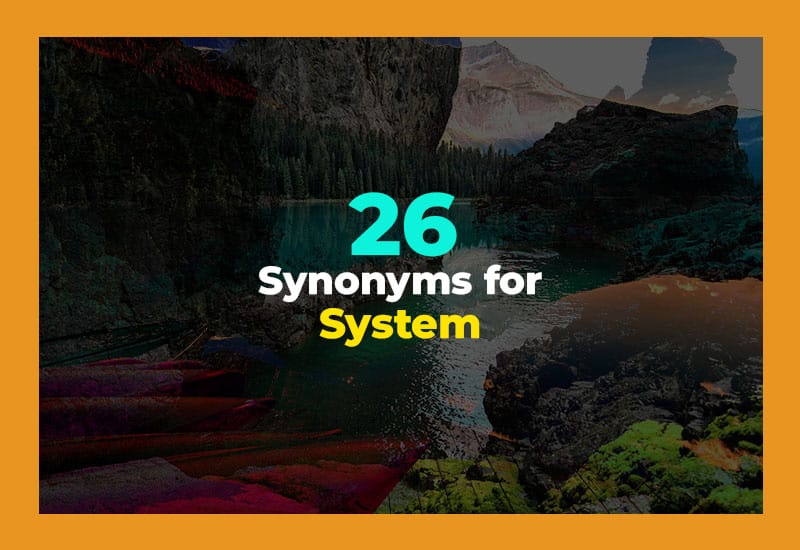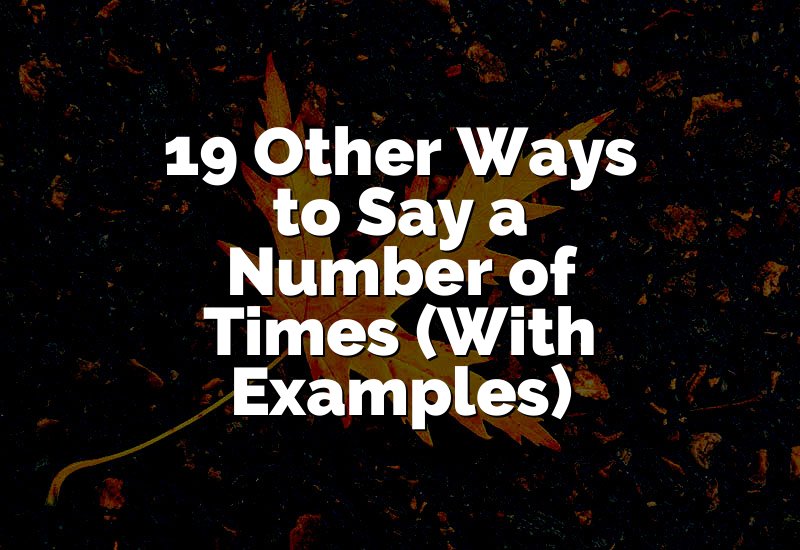You know when you keep using the word “system” over and over, and it starts to feel kinda boring? Yeah, same here. Whether you’re writing, speaking, or just trying to sound a bit more creative, finding another word for “system” can totally freshen things up. So I put together a list of 26 different words you can use instead.
1. Structure
A structure is how parts are put together to make something work. It’s like the bones of a building or the layout of an idea. You can use “structure” when talking about anything that’s been planned or built in a certain way. For example, a school has a learning structure, and a business has a working structure. Even your daily routine is a kind of structure. When people ask how your week looks, you might say, “My structure is pretty simple – work, dinner, sleep.” It’s a smart word to replace “system” when describing something organized.
2. Framework
A framework is a basic plan or support that holds things together. Imagine building a house – you start with a frame. In the same way, ideas, software, or rules can be part of a framework. For example, “The company used a new framework to train employees faster” or “The project is built within the framework of environmental laws.” It's often used in tech, education, and business. A framework doesn’t give all the details, but it shows the shape of something and how it should grow or run.
3. Network
A network is a group of things or people that connect and work together. You've heard of a computer network, right? Or a network of friends? When things or people are linked and share something, it becomes a network. For example, “She built a strong network of contacts in the marketing world” or “All our devices are part of the same Wi-Fi network.” It's a great word to use when talking about systems where things communicate or interact with each other.
4. Scheme
A scheme is a smart plan or organized idea. It's usually used when someone wants to get something done with a set plan. Sometimes it sounds sneaky, but it doesn’t have to be. For example, “The government launched a health scheme for rural areas” or “He made a savings scheme to help his family.” It replaces “system” well when you’re talking about a setup or a strategy meant to help people or solve a problem in a planned way.
5. Setup
Setup is a very casual and simple way to say “system.” It refers to how something is arranged or how it works. Like when you walk into someone's gaming room and go, “Wow, nice setup!” Or you ask someone, “What’s your home office setup like?” It's also used for events or machines. “The setup for the concert took hours” or “The software setup is very easy.” It's a friendly, everyday word that fits perfectly in place of “system.”
6. Method
A method is a planned way of doing something. If you have a method, you have steps that you follow to get results. Teachers have teaching methods, and chefs have cooking methods. For example, “Her study method helps her remember everything before exams” or “This cleaning method saves a lot of time.” It's a great word to use instead of “system” when you’re talking about doing something in a careful or smart way.
7. Procedure
A procedure is a specific set of steps that you follow to complete a task. It's like a recipe but for any task – surgery, troubleshooting a phone, or filling a form. For example, “The fire drill procedure must be followed exactly” or “There's a safety procedure in every lab.” It's a more formal word than “system” and is often used in medical, legal, or office environments. It shows that things must happen in a certain order.
8. Process
A process is a series of actions that lead to a result. It's everywhere – cooking, learning, making things. “The hiring process took two weeks” or “Baking bread is a fun process!” A process can be short or long, but it's always something step-by-step. Use it instead of “system” when you want to describe how things move forward over time. It's great for explaining how things work.
9. Organization
Organization means a group or an arranged setup of people or things that work together. A school, a company, or a club is an organization. For example, “The charity is a well-known organization that helps kids” or “The new organization system in the office saves time.” You can also say, “My closet is finally in perfect organization!” So it works for both people and things when you want to talk about a neat, structured setup.
10. Arrangement
Arrangement is how things are placed or set up. It can be a music plan, a seating chart, or even your morning schedule. You might say, “The seating arrangement made the party more fun” or “She made a nice flower arrangement for the table.” It replaces “system” well when you talk about how things are organized to look nice or work better. It's soft, simple, and very friendly to use.
11. Configuration
Configuration is the shape or setup of something, especially in tech or machines. It’s about how the parts are arranged. For example, “The computer's configuration supports high-quality gaming” or “We changed the configuration to improve the sound system.” It's great for technical setups like gadgets or tools. So if you’re into electronics or software, this is a cool word to use instead of “system.”
12. Order
Order means everything is in the right place or follows a pattern. It's the opposite of mess. You might say, “The office is in perfect order today” or “The teacher explained the order of the math steps.” When everything works together nicely and makes sense, it's in order. It can be a perfect swap for “system” when talking about structure, behavior, or even rules.
13. Mechanism
A mechanism is a working part or process that helps something function. It's often used in machines or when talking about how something works inside. For example, “The clock has a simple mechanism to tell time” or “The payment mechanism is safe and easy.” It's a good choice instead of “system” when explaining the way something works technically or functionally.
14. Plan
A plan is a clear idea of what to do and how to do it. You make a plan to reach a goal. You can say, “She made a study plan for exams” or “Our workout plan starts on Monday.” A plan is like a personal system for success. It's a very easy and useful word to replace “system” when you're talking about steps, goals, and organization.
15. Format
Format is how something is arranged or presented. You can use it for text, events, games, or systems. “The report format was easy to read” or “This show follows a weekly format.” It’s a great word to use when talking about structure, especially in writing or presentations. It gives you a sense of how everything is shaped or set up.
16. Model
A model is a copy or example of how something works. It's often used in science, education, or business. For example, “They created a business model to grow faster” or “The teacher showed a solar system model.” It shows how something works or should work. So instead of saying “system,” you can say “model” to describe an example or plan that helps you understand the real thing.
17. Routine
A routine is something you do the same way every time. Like brushing your teeth every morning – that's a routine. You could say, “Her daily routine includes yoga and coffee” or “We follow a strict routine at the gym.” Routines help things run smoothly, like a personal system. It’s a friendly word you can use instead of “system” when you're talking about habits or regular schedules.
18. Program
A program is a planned set of activities. You hear it in schools, on TV, or in fitness – like a weight-loss program or TV program. For example, “The school has a reading program for kids” or “She joined a fitness program last month.” It’s a great word to use when there’s a plan made for people to follow or learn from.
19. Strategy
A strategy is a smart plan to win or achieve something. It's often used in business, games, or life planning. For example, “Our marketing strategy helped boost sales” or “She used a new study strategy and scored better.” It's a clever way to say “system” when you’re talking about thoughtful planning or decisions to reach a goal.
20. Operation
An operation is how something runs or works. It's used in business, medical, and military contexts. “The company's operation starts at 8 AM” or “The rescue operation was a success.” It's a strong word you can use instead of “system” when you’re describing how a process or group works in action.
21. Infrastructure
Infrastructure refers to the physical and basic setup that helps things work, like roads, power, and the internet. “The city's transport infrastructure is improving” or “Good digital infrastructure helps online businesses.” It's a more serious word, but it’s perfect when you’re talking about big systems that support daily life or work.
22. Pattern
A pattern is something that repeats or follows a certain order. Like “The pattern of his sleep was off this week” or “We saw a pattern in the sales numbers.” Patterns help you see the structure behind actions or events. You can use it instead of “system” when describing behavior, habits, or styles.
23. Design
A design is how something is made to look or work. It's not just about art – it also includes how systems function. “The website's design makes it easy to use” or “They made a new design for the school plan.” It's a creative way to talk about structure and planning.
24. Composition
Composition is what something is made of. Like “The team's composition changed this year” or “The chemical composition of water is H2O.” It’s more scientific but useful when you’re talking about how things are put together.
25. Technique
A technique is a way of doing something skillfully. “Her painting technique is unique” or “He used a smart technique to fix the leak.” It's a personal way or system of doing something better.
26. Regime
A regime is a set way of doing things, often linked to rules or power. “He follows a strict diet regime” or “The old regime was replaced by a new one.” It’s useful when you talk about systems of control or routine.

I hope this list helped you see just how many other ways you can say “system.” Whether you’re writing, talking, or just trying to sound a bit more creative, these synonyms give you so many choices. Some are casual, some are formal, and others are super clever. Now that you’ve got all these cool options, you’ll never be stuck repeating “system” again. Go ahead and try them out in your next sentence or project — you’ll sound more clear, fresh, and confident!









